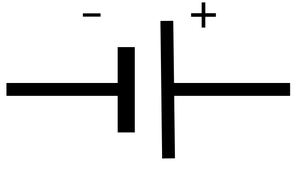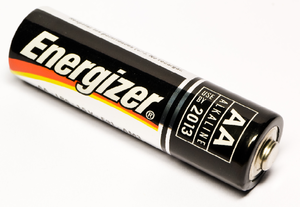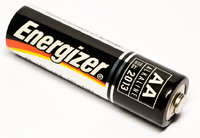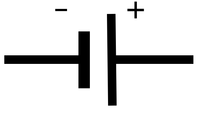Electrical Cell
Contents
Key Stage 1
Meaning
An electrical cell is something we use to power things that we don't plug in.
Key Stage 2
Meaning
An electrical cell is the part of a circuit that makes the electricity flow.
About Electrical Cells
- An electrical cell stores energy.
- Inside an electrical cell there are chemicals that react with each other.
- An electrical cell pushes the electricity along the wires when there is a complete circuit.
| An electrical cell. | The symbol for an electrical cell. |
Note for Teachers
- Make sure not to use the word battery unless you are talking about many electrical cells added in series. By KS3 students are rarely aware of the distinction between an electrical cell and a battery and this problem persists into KS4 causing them to lose marks in their exams.
Key Stage 3
Meaning
An electrical cell is an electrical device that has a chemical potential energy store which provides a push for electrons to flow around a circuit.
About Electrical Cells
- An electrical cell stores energy.
- Inside an electrical cell there are chemicals that react with each other.
- An electrical cell pushes the electricity along the wires when there is a complete circuit.
| An electrical cell. | The symbol for an electrical cell. |
Key Stage 4
Meaning

The circuit symbol for an electrical cell.
An electrical cell is a device capable of storing store chemical potential energy which can be transferred by electrically to components in a circuit.
About Electrical Cells
- An electrical cell is a source of direct current.
- Electrical cells contain a store of chemicals which can react to produce a potential difference.
- In an electrical cell a displacement reaction occurs between different metals. The greater the difference between reactivity of the metals the greater the potential difference provided by the cell.
- The reaction only takes place when there is a complete circuit. If the circuit is broken the reaction will stop.
- Once all of the reactants have been used, the electrical cell will stop providing a potential difference.


